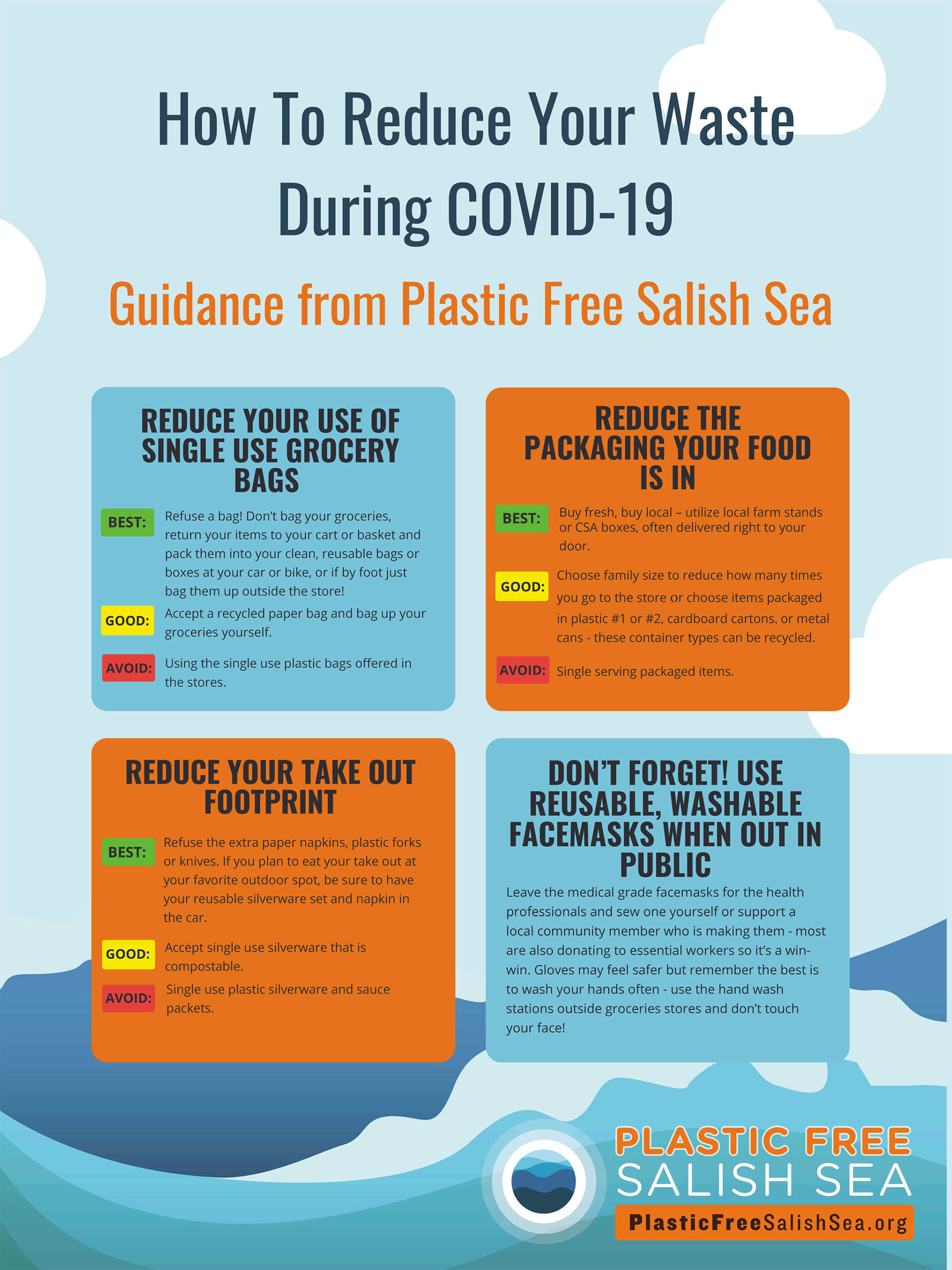Submitted by the San Juan County Marine Resources Committee
In 2018, members of the Marine Resources Committee, Friends of the San Juans, San Juan County Solid Waste, the Lopez Solid Waste District and the Orcas Exchange came together to build an education and awareness-building campaign aimed at changing citizen behavior and the cultures of plastic use in San Juan County and throughout the wider Salish Sea region. This group has continued to grow and expand their ideas and efforts. But, the global pandemic that we now find ourselves in has found the group being called upon to provide guidance on newly emerging issues related to plastics and waste.
Throughout the Salish Sea, communities have been working hard to prevent and reduce the use of single-use plastics and educate communities about sustainable alternatives. Our story of preventing plastic use in the Salish Sea is actually part of the larger narrative of the Earth’s plastic crisis.
In the words of activist Shibu K. Nahir, “Look at our globe: it’s a water world… So if you imagine that we are in a womb filled with water, whatever I do here is going to affect every single life form in this earth… We need to bring in that kind of a spirit of unity across boundaries because these toxins do not understand political boundaries.”
In March 2019 Washington State passed a reusable bag bill, which will ban single-use plastic bags across the state, following the lead of many local communities, including San Juan County. That was a big step in the right direction and gives businesses the motivation to look for alternative supplies.
Then COVID 19 happened. In a matter of days grocery stores around the country put up signs that re-usable bags were not allowed, and coffee shops refused to refill personal mugs. But the idea that “plastic bags are safer” runs in direct contradiction to the best available science. Earlier this month the NewEngland Journal of Medicine found that the virus that causes COVID19 persists on plastic 300% as long as it does on paper! 72 hours! Plastic showed the longest survival time of all materials the scientists tested. Stainless steel, cardboard, copper and the air itself were all far less hospitable than plastic! Unfortunately, special interests have capitalized on peoples’ fears to advance the use of plastic bags and delay implementation of plastic bag bans. Fortunately, the countries of Italy, Indonesia, and the Netherlands found no reason to ban the use of reusable bags.
What is a concerned world citizen to do? REFUSE to use single-use plastics and keep looking for ways that you can REDUCE your dependence on convenient packaging. Check out this nifty infographic with some easy to follow tips to still REFUSE, REDUCE and REUSE in the age of COVID-19.



